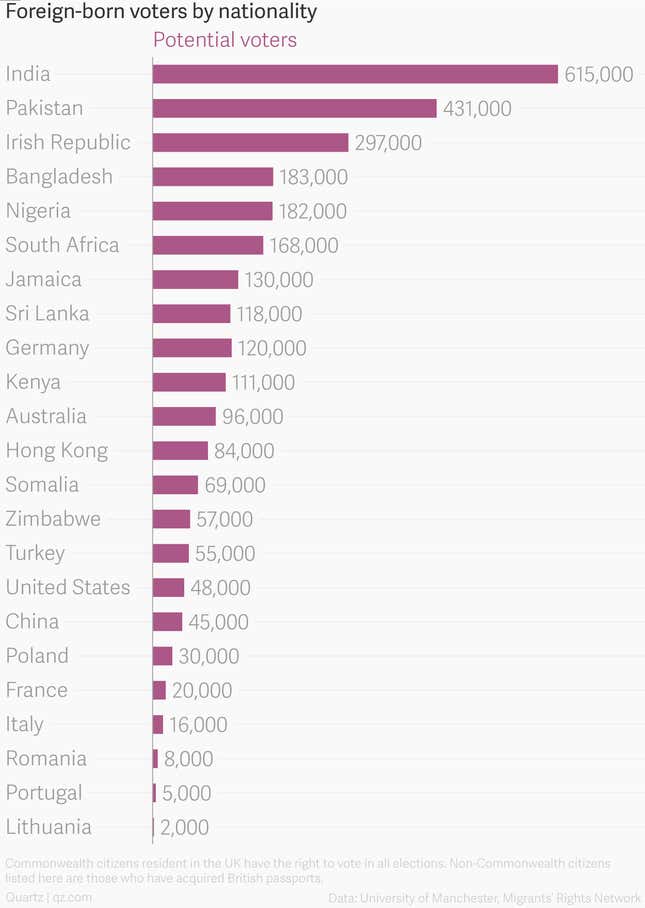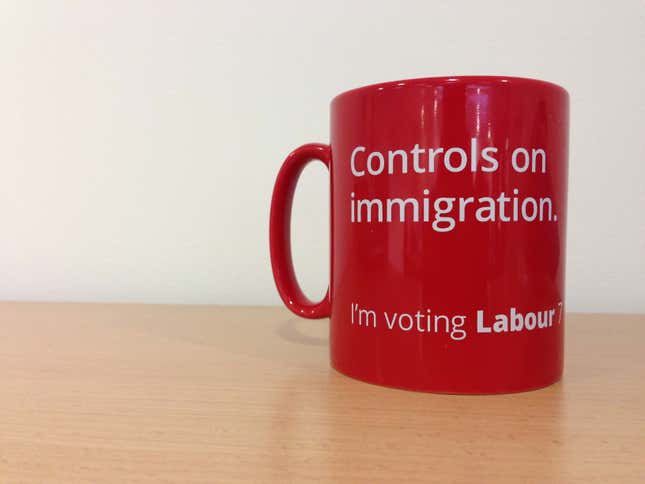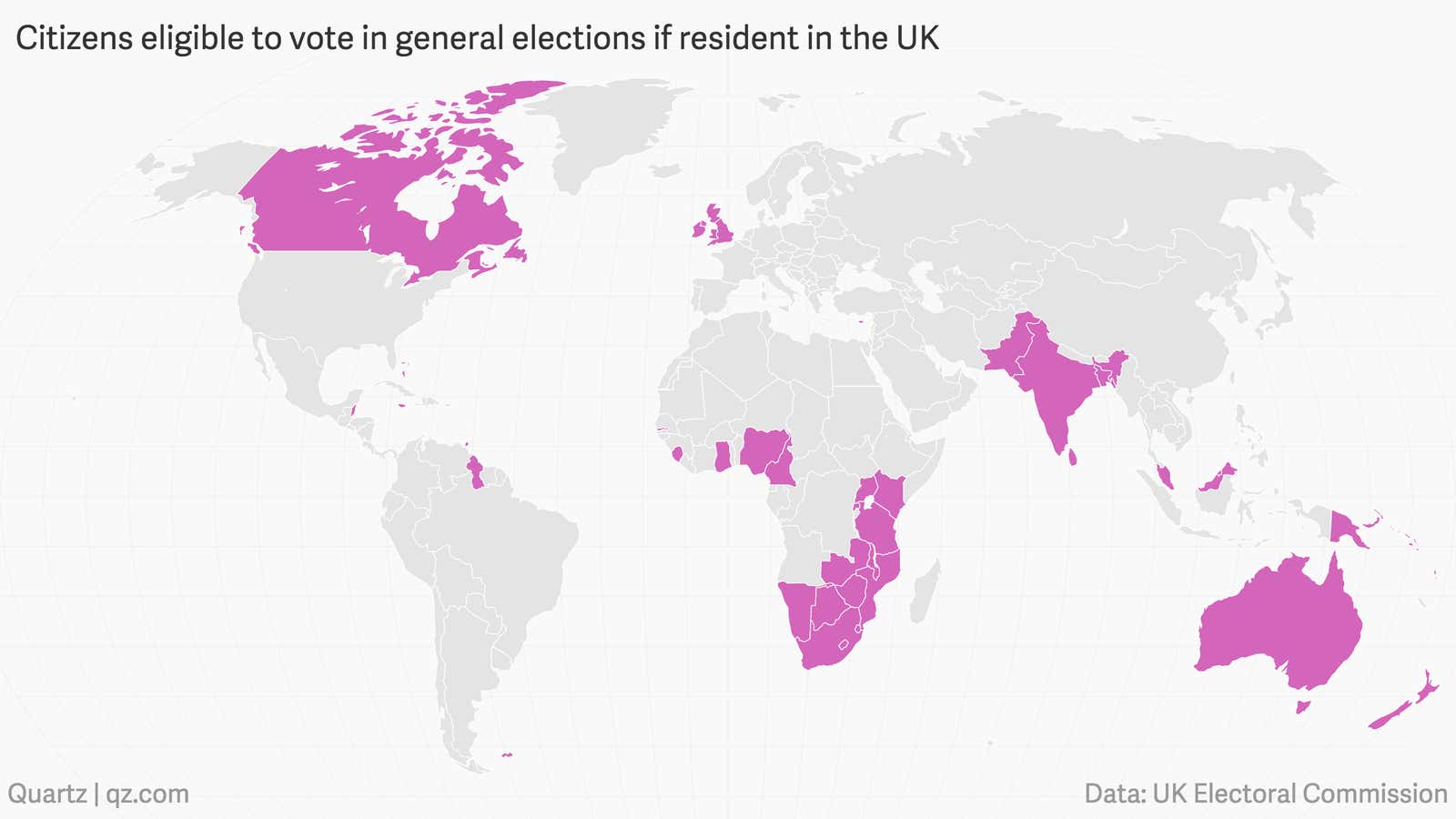One of the many quirks of the British electoral process that citizens of other countries are allowed to vote in general elections.
In tomorrow’s election, some 4 million people born outside the UK will have the right to vote, according to researchers (pdf) at the University of Manchester’s Centre on Dynamics of Ethnicity (CoDE) and the Migrants’ Rights Network (MRN). By this measure, one out of every 10 voters will be a migrant.

These voters are concentrated in and around London but are too dispersed to swing the election as a whole. But they could make a difference in the capital, which is home to 19 of the 20 parliamentary seats with the largest share of migrant voters. Two of these—East Ham and Brent North—could have majority migrant electorates, depending on turnout, according to the researchers.
“The risk facing the parties today is that their current fierce rhetoric over immigration… will have a lasting impact on the political orientations of the new migrant electorate,” argue CoDE and MRN. Even the Labour party, traditionally the choice of migrants, inscribed “controls on immigration” on a stone plinth of campaign pledges—and sells mugs with the same message.

Anybody from Ireland or the Commonwealth legally resident in the UK during a general election has the right to vote (pdf). Foreign-born residents from elsewhere must have British citizenship to cast a ballot.
